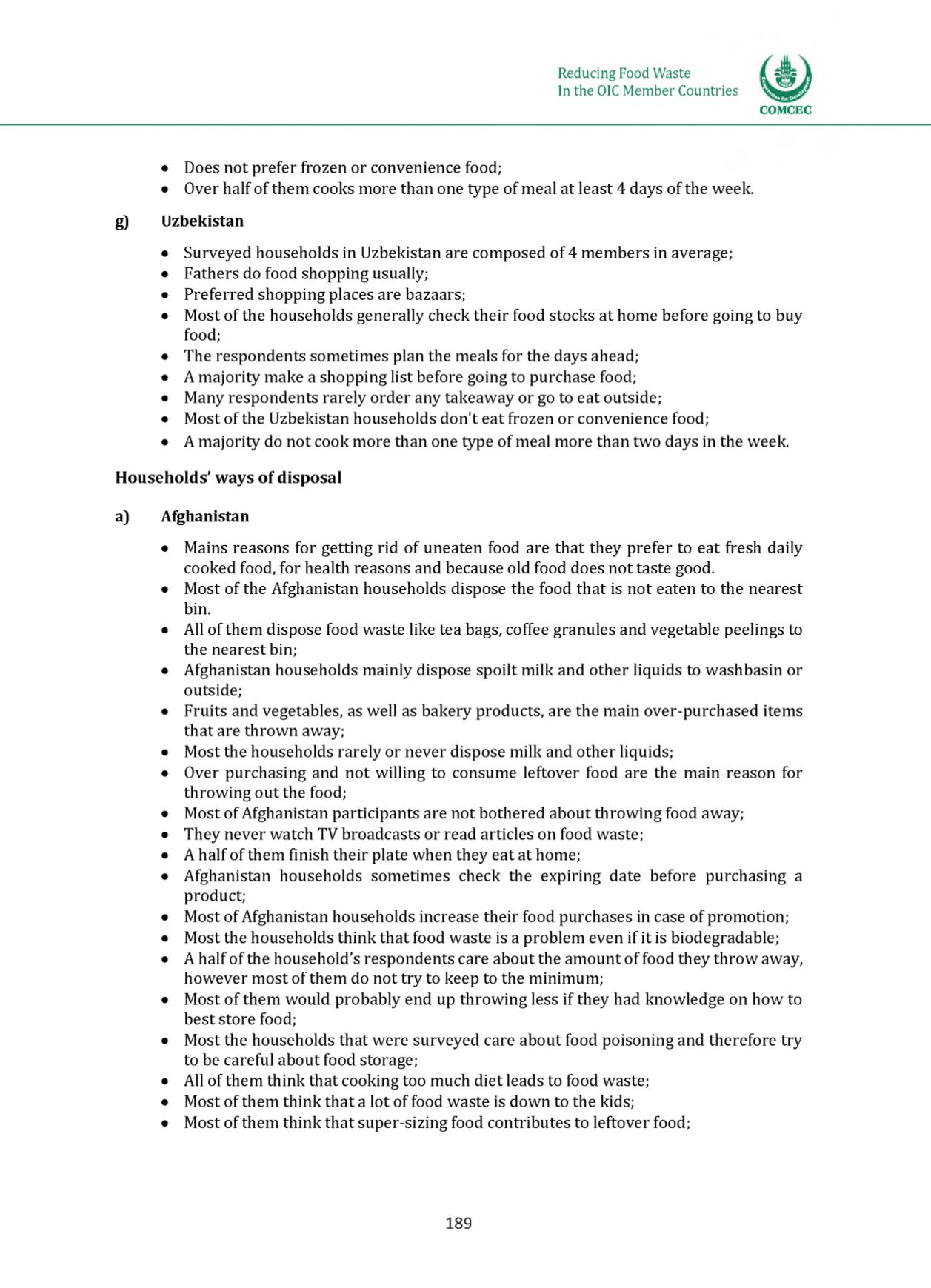

COMCEC
Reducing Food Waste
In the OIC Member Countries
• Does no t prefer frozen or convenience food;
• Over ha lf of them cooks more than one type of meal at least 4 days of the week.
g)
Uzbekistan
• Surveyed households in Uzbekistan are composed o f 4 members in average;
• Fathers do food shopping usually;
• Preferred shopping places are bazaars;
• Most of the households generally check their food stocks a t home before going to buy
food;
• The respondents sometimes plan the meals for the days ahead;
• A m ajority make a shopping list before going to purchase food;
• Many respondents rarely order any takeaway or go to eat outside;
• Most of the Uzbekistan households don 't eat frozen or convenience food;
• A m ajority do n o t cook more than one type of meal more than two days in the week.
Households' ways of disposal
a)
Afghanistan
• Mains reasons for getting rid of uneaten food are tha t they prefer to eat fresh daily
cooked food, for health reasons and because old food does n o t taste good.
• Most of the A fghanistan households dispose the food th a t is n o t eaten to the nearest
bin.
• All of them dispose food waste like tea bags, coffee granules and vegetable peelings to
the nearest bin;
• Afghanistan households m a in ly dispose spoilt m ilk and other liquids to washbasin or
outside;
• Fruits and vegetables, as well as bakery products, are the m a in over-purchased items
th a t are throw n away;
• Most the households rarely or never dispose m ilk and other liquids;
• Over purchasing and n o t w illing to consume leftover food are the m a in reason for
throw ing ou t the food;
• Most of Afghanistan participants are no t bothered abou t throw ing food away;
• They never watch TV broadcasts or read articles on food waste;
• A h a lf of them finish their plate when they eat at home;
• A fghanistan households sometimes check the expiring date before purchasing a
product;
• Most of Afghanistan households increase their food purchases in case of prom otion;
• Most the households th ink th a t food waste is a prob lem even if it is biodegradable;
• A ha lf o f the household’s respondents care abou t the am o u n t o f food they th row away,
however m o st of them do no t try to keep to the m in im um ;
• Most o f them w ould p robab ly end up throw ing less if they had know ledge on how to
best store food;
• Most the households tha t were surveyed care abou t food poisoning and therefore try
to be careful abou t food storage;
• All of them th ink tha t cooking too m uch die t leads to food waste;
• Most of them th in k tha t a lo t of food waste is dow n to the kids;
• Most of them th in k tha t super-sizing food contributes to leftover food;
189
















